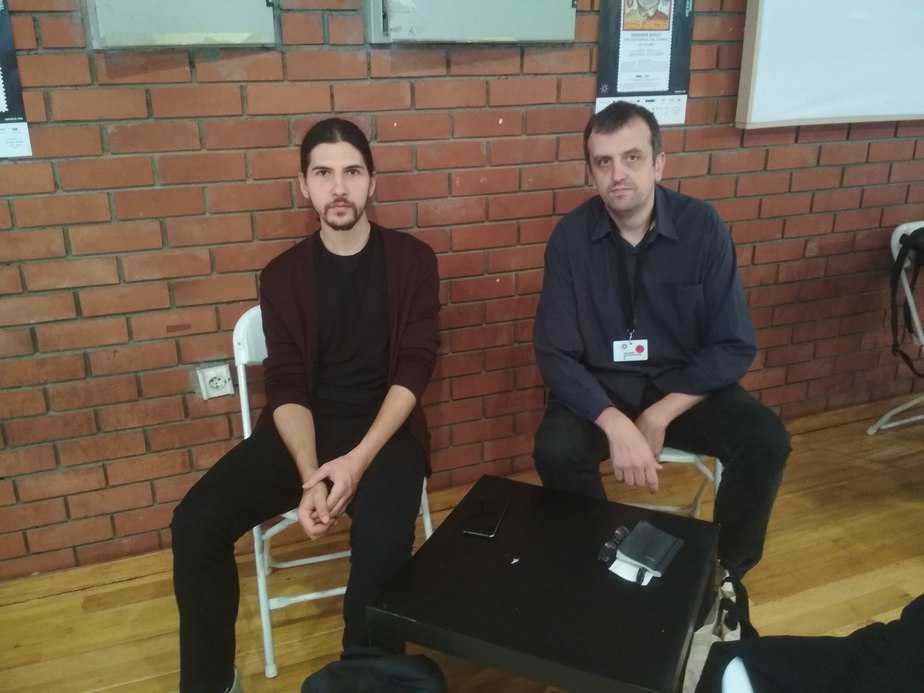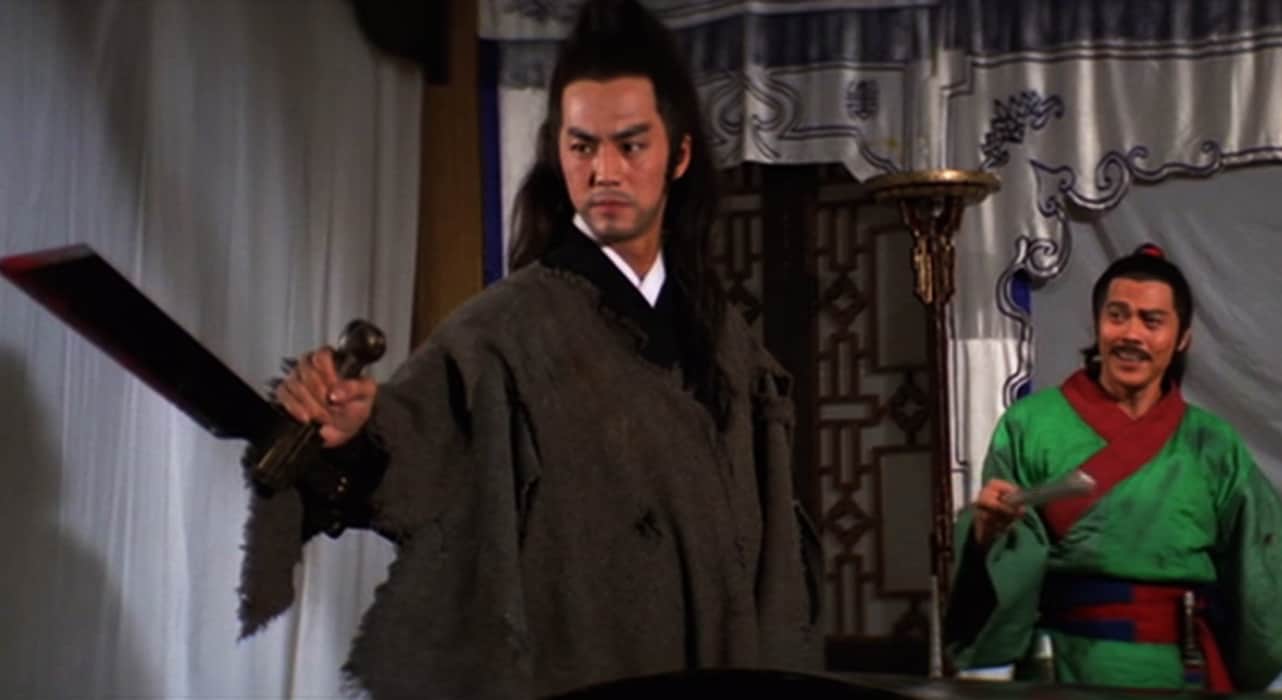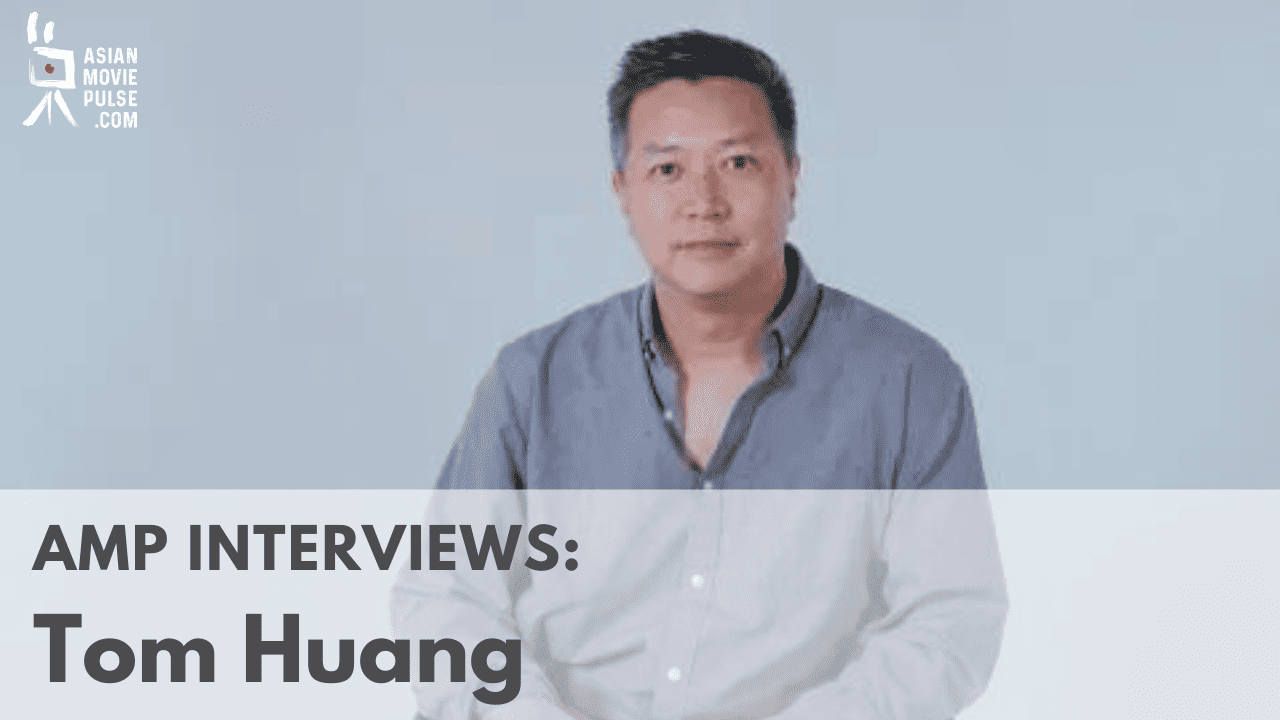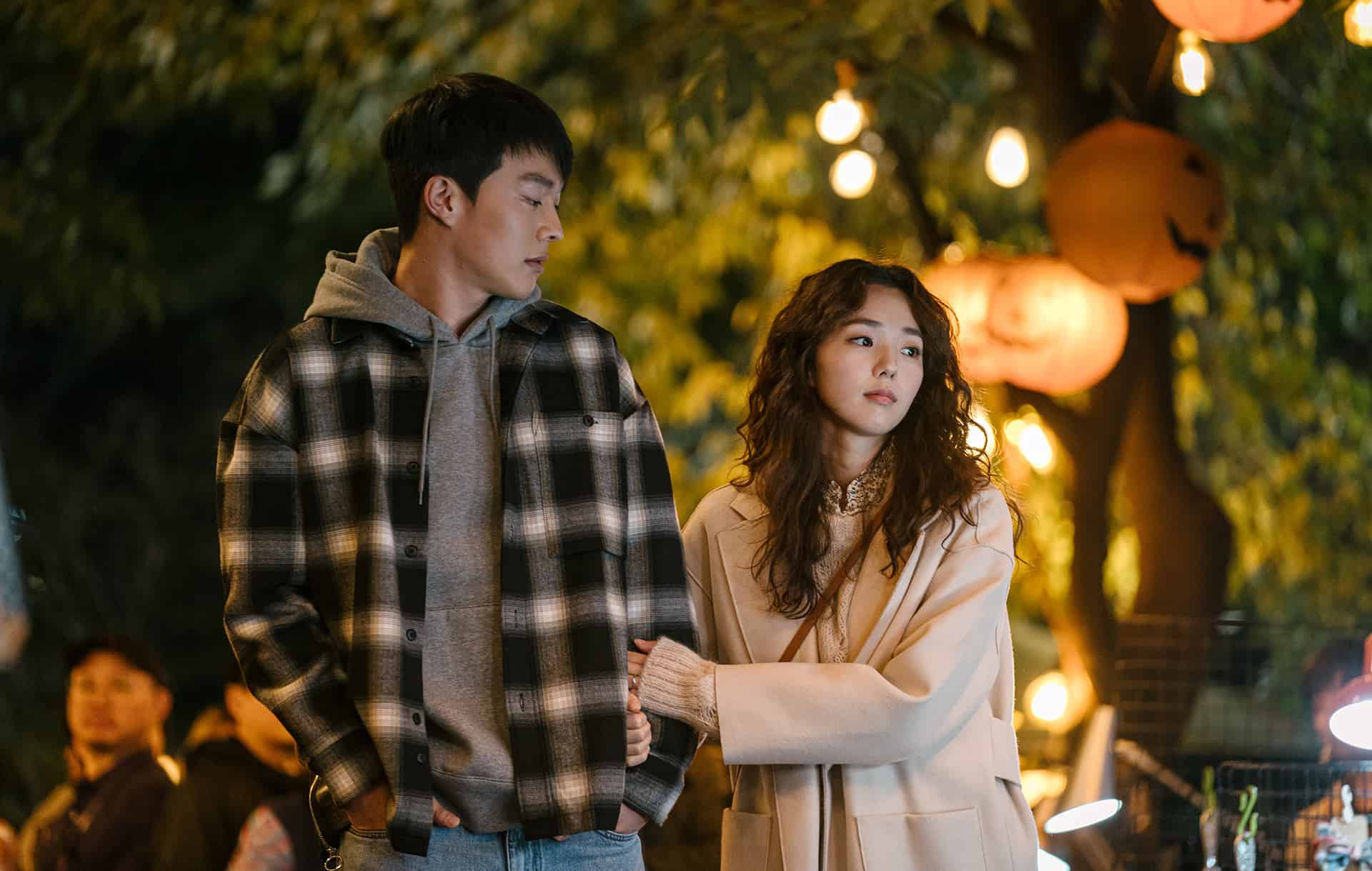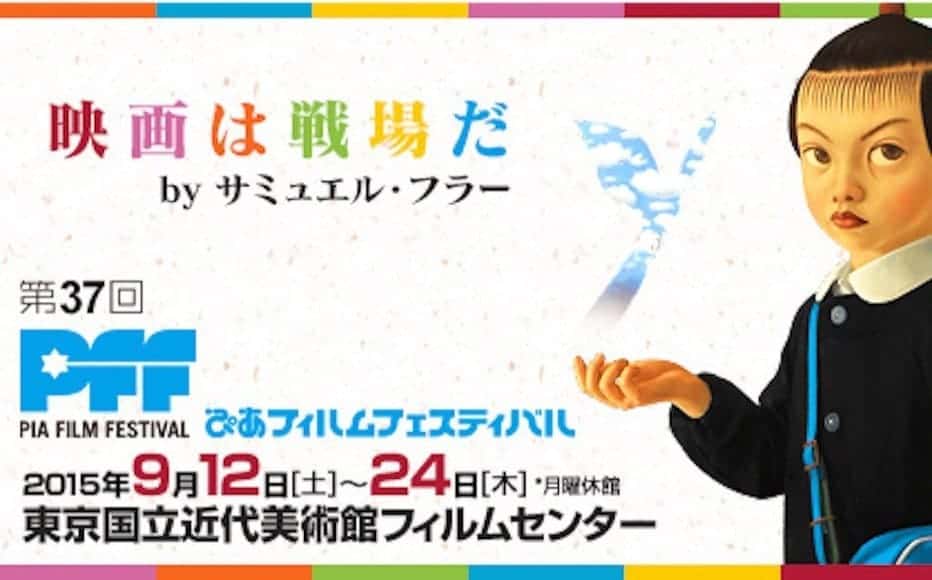Ivan Marković is a Serbian director and cinematographer, born in Belgrade. His short film “White Bird”, which he cο-directed along with Linfeng Wu, had its premiere at the Berlinale Shorts section. His experimental documentary film “Centar” was screened at the Doclisboa film festival, while his feature film “From Tomorrow On, I Will”, also a co-direction with Linfeng Wu, had its premiere at the Berlinale Forum section. He lives and works between Belgrade and Berlin.
On the occasion of “From Tomorrow On, I Will” screening at Thessaloniki International Film Festival, we speak with him about his unusual cinematic approach, his inspiration, Beijing, the poem that gave its title to the movie, and other topics
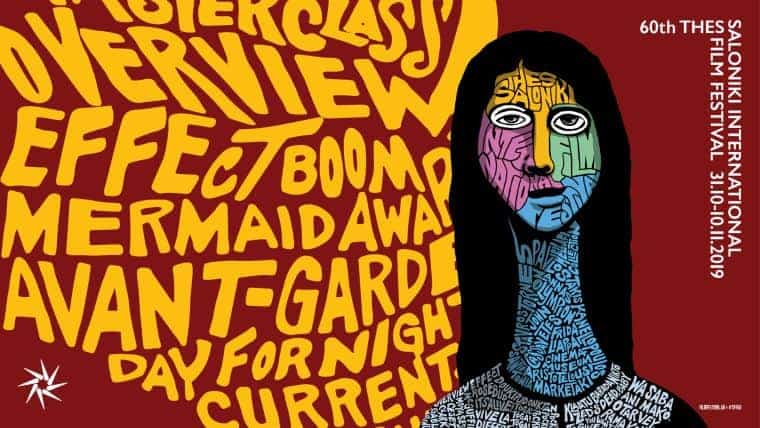
How did you meet Linfeng Wu and how did you end up shooting a movie in Beijing?
I met Wu through a student festival in Munich in 2010 and then he came to some film festivals in Serbia. We started talking about films and we realized we like the same filmmakers. I always wanted to go to China and so, he came up with this idea to invite me there somehow. Then we started making films together, we shot two documentaries that we did not manage to finish due to lack of funding and then we shot a short together, a docufiction called “White Bird” which was shown in Berlinale in 2016, and then we did this one. Our relationship developed over time, we got closer as we worked together so we knew what the other one wants and how the other one thinks.
As I was coming almost every year to Beijing, I could see how the area where he was living would change a lot from 2014 until now. It is called Beijing's 5th ring and in 2014, it was kind of a periphery, it was far and quite rough but four years later it got so expensive that Wu had to move further away. So this development of the city, which is much faster and more extreme than we can imagine in Europe, was something very interesting for me. This thing also happened at the same time with the changes in Belgrade, all of these aggressive developments and aggressive modernization and so on.
The key element which brought the idea of this film has to do with the underground spaces. The first time I was in Beijing, in 2014, I got to see such a place accidentally, when we wanted to pick up some used equipment we found online. There were stairs going diagonally down, they ended up in a underground hallway and there was a gatekeeper, an old man, not in uniform, who was asking what I was doing there, so Wu had to explain. This long hallway had doors to many small rooms where people lived. Because I grew up in Belgrade, I knew what a bomb shelter looks like, but I never thought what it means to live in one. And to imagine turning this space into living premises was very touching for me, that they have to make this effort to make this space habitable, the effort they to keep the walls dry to keep it clean and so on. There is a sense of community despite the fact that the people there are not related to each other, they are strangers. This was something that stayed with me and then I slowly started writing.
People still live there?
In fact, even while we were shooting there, it had already become illegal. There were many reasons, maybe the most evident one is this campaign “The New Face of Beijing” and this is something you see in the film, written on the billboards we shot. It also had to do with what I was saying before, about the city centre spreading. The officials want to achieve this image of a modern, contemporary city, which is very western looking, very homogenous. A city that has no space for the people like the protagonists of this film, no place that they could afford for living. Basically, this is why places like underground apartments, but also workers' housing, workers' villages, all of these kind of shelters and barracks are completely purged from the city area. They don't fit this image. At the time we were shooting actually, we scouted a number of these places, but the people living there were too afraid of the attention, so we could not shoot there.
Can you explain the title of the film?
The title comes from a Chinese poem, by Hai Zi, whose original title is “Facing the Sea with Spring Blossoms”. The English title of the film is the first line of the poem. In the poem, the poet talks about all his wishes, what he wants to have in life and it is kind of a love letter to life but also a goodbye, because he committed suicide after writing that poem. Of course, if you just see the title you will not understand all this, but what I liked about the English title is that “From Tomorrow on, I Will” is like a promise we make to ourselves and when you make such a promise, almost always you know that it will not happen, so it is like a fake promise, a promise that you cannot keep.

You implemented a rather different cinematic approach to the film, somewhere between the documentary and the feature, almost experimental. Why?
We were working before in documentaries, and then we did this short film, which was a docufiction. For all these films, we had an idea but not really a script. In this case, we had a script, but it was very fundamental. All of the elements were defined, all of the dialogues were written. But there was space for a lot of things we did not expect, to happen. We were writing scenes in the city where we see the invisible work done in the city, by the cleaners, security guards etc, so we wanted to make these people and their work visible, and that is the documentary part of the film.
We were sure that we wanted to work with non-professional actors, we were doing a lot of street casting. We felt that in the face of our main actor, Li Chuan, you can see that he lives in these kinds of conditions, you can see that he does this kind of work. He does not have to play it, he does not have to perform it, to imitate it, he is that. Furthermore, because we were working with non professional actors, we wanted to keep their actions very simple, keep the lines very straightforward and not expect any dramatic acting. The text communicates along with their faces, gestures, body language, and that is enough.
Then it was very important that this film works in a very material way, in a very visual way and you can see all these things in his face, if you look hard enough. So, we wanted to work with non professional actors and we wanted to shoot in places that are interesting and show all of these things about the changing of the city. We were also thinking about Brechtian epic theatre, so we had a lot of these compositions that look like a stage in a way, even though the film is a documentary.
Was it difficult working with non-actors?
For me it is kind of usual, I also shot this way in Serbia and Montenegro and it is something I really like. I think it is important to find a person who understands the project and this person has to trust you, so that means that this person knows what you want to do and trusts the process. I think it is important for people to feel that they are not used, but at the same time, there is a fine line before you become too friendly because then things become too personal. There is a specific limit about how close you can get when you are working with non actors and also you need to keep some distance in order to keep the collaboration serious and not too friendly.

The protagonist seems to be very lonely, he does not seem to be able to connect with anyone and anything around him. Was one of your purposes to show the alienation and loneliness people experience in the urban centers?
Absolutely, in our film it goes even a step further, in kind of an organic way. He is working by night and he is sleeping by day underground. So, he is not only constantly alone, but, because of the nature of his job, he is also always in the dark. And then, in the scenes before or after his work, which are usually very short, we wanted to make the outside world very bright, very colorful, very loud, compared to where he lives and where he works. This is why the film is slow, and dark and quiet and then has these “explosions” of bright, loud scenes, like the feeling when you are in a tunnel and you go out and you are blinded by the light. We wanted to give the feeling that what is normal life for most people, for him it is too intense because of the way he lives.
Can you explain to me about the scenes with the golden foils wrapped around those pillars?
This is something we found during location scouting, they are used as decoration. Basically, we wanted to have this kind of absurd element of these pretty and fancy things that are linked with the new residential or business buildings. It has no purpose, but it also connects with all these other things, like the billboards which we have in the beginning of the film, these posters and also the posters inside their room. All these things that they are supposed to be pretty, but are in a way tragic.
There is a scene near the end of the film, when he is lying on a bench in a park during night, and then suddenly the image becomes one of day, through the use of lighting. Can you elaborate on this process?
Originally, it was intended to have it in the dark and then we shot it that way but we thought that something was missing. Later on during the shooting, this idea came up because the light was changing a lot, between cloudy or sunny, and we were disturbed by the fact that the light was changing that much. So, we had the idea that we should use it for that scene and we went back to reshoot it. We were waiting for it basically, the camera assistant was looking at the sun through his phone and when he saw the cloud moving he would yell “Action!” and everyone was ready and were trying to get the right timing for several hours but eventually we managed. It was completely natural, not a digital process.
How much time did you spend shooting?
We had a very small budget, less than 20,000 euro and we could only afford to shoot for ten days.
How much time did you spend in post-production?
We spent a lot of time preparing the film, looking for the actors, working with the actors, our entire process was much longer, but with the team and equipment we had just ten days, although I was there for two months. Regarding post-production, we were really hurrying because we were shooting in September and we had to premiere in Berlinale in February. I was kind of obsessed with this film, I felt that we did not do so many things that we wanted and there were so many things that did not work the way we planned but still, I felt that something interesting exists in this film. Then, I was thinking that this was the hardest shooting I ever had, if I don't edit this fast, I will get sick of it. I was editing immediately after we were shooting and it was a very intense period. From July until February we did the preparation, the shooting and the post-production.
There are some scenes in the movie where we watch the protagonist from far away. Was it difficult to shoot those?
We were shooting without permission, because the shooting fees in some of the locations, like the shopping district, were too expensive, so it would be impossible with our budget. We were getting kicked out of places and then we had to find different solutions. We were working 13-15 hours a day with all the travelling in such a huge city and then we were kind of going to places which look like the centre of the city and combining it with the real centre of the city and so on.
What about the building the protagonist works?
That we had to pay, and we paid a lot for it. Also for the underground space because they were all locked, so we had to find a way, and this was also expensive.
Has the film screened in China already?
Yes, it screened in First Film Festival.
How was the reception?
It was very mixed. Some people really liked it and some people did not at all. This was not so much because of the topic of the film but because its form can be difficult for some. Also, I find interesting that whether this film is appreciated has nothing to do with education, or the socio-economical status of the viewers, we had great responses from people who do not know much about cinema but also from people who do know a lot. It is kind of hard to place, but in essence it is a very straightforward film.
Are you working on anything else at the moment?
I am working at two films as DP, which will be in the next two years and also for my new project, which will be in Serbia. It is completely different, in a strange way a coming-of-age film about a group of teenagers who go for summer vacation in Greece, and then the film becomes more abstract.
If money was not an issue, what kind of film would you shoot?
If I had all that money, I would not shoot a film, I would try to do something more useful with it. I think there is too much money involved in films anyway. I do not want to do another film with as little money as this because I then have to do other things to survive, so I would like to make films with more budget than this one, but at the same time, when I hear about these 100 million dollar budgets, I think it is fundamentally wrong.


